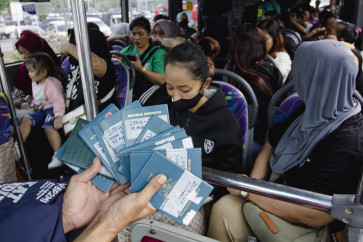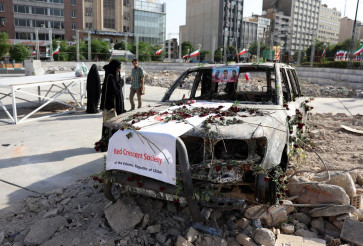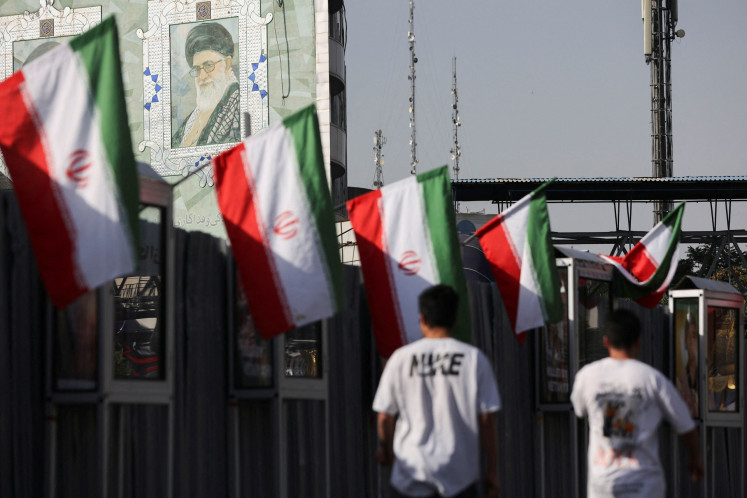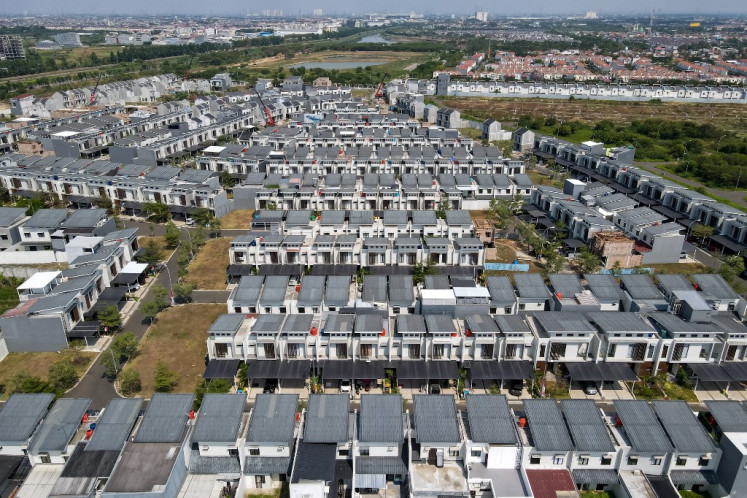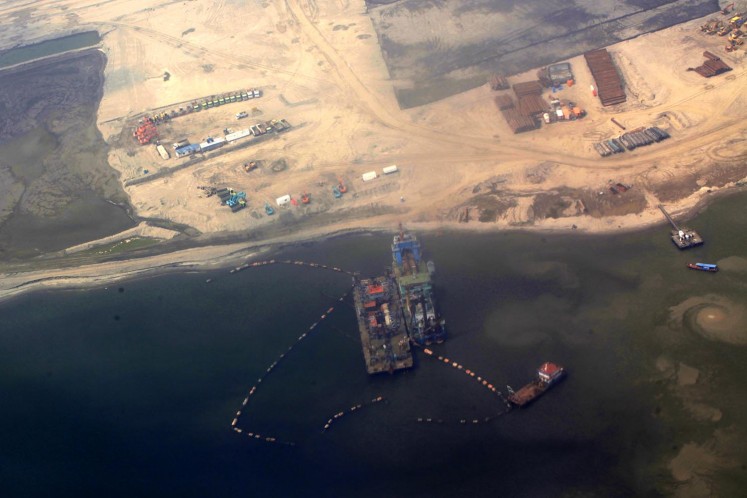Popular Reads
Top Results
Can't find what you're looking for?
View all search resultsPopular Reads
Top Results
Can't find what you're looking for?
View all search resultsSecurity, legal experts talk better ways to handle unruly sports crowds
Change text size
Gift Premium Articles
to Anyone
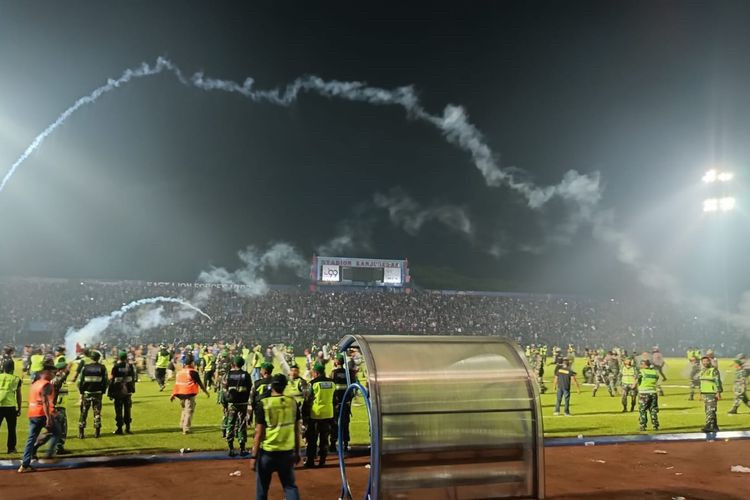
Following the recent Kanjuruhan tragedy, experts weigh in on handling crowds the right way.
In one of the worst soccer tragedies in history, at least 125 people died and more than 300 were injured after a match between archrivals Arema FC and Persebaya Surabaya in Malang, East Java, on Saturday. Police fired tear gas into the stadium in response to fans storming the playing field.
Video footage and testimonies on social media indicate that the police shot tear gas inside the stadium and into the stands in violation of international soccer governing body FIFA’s regulations.
“[The police] were shooting tear gas in stands 14, 13 and 12, where my husband and I were sitting,” 28-year-old Dewi Nur Cahyanti from Malang told The Jakarta Post, referring to the action that many attendees say caused the stampede as fans rushed for the exits to escape the painful gas.
“Many people next to me fell unconscious, couldn’t breathe and some eventually died.”
Dewi managed to escape with her husband after the first tear gas canister was shot. The stadium was some 4,000 people beyond its capacity.
“When it was announced that there were around 42,000 supporters [in a stadium with a capacity of 38,000], it became clear to me why I couldn’t move anywhere because there were so many people,” Dewi said, adding that she was traumatized by the incident.
Managing unruly fans
Members of the public have demanded further investigation of the police’s handling of the fans rushing the playing field, especially their use of tear gas in the stadium.
“This case occurred due to procedural violations, as well as violations of FIFA’s stadium safety and security regulations,” Akmal Marhali, coordinator of the Save Our Soccer initiative, told the Post on Sunday.
Akmal said many factors had contributed to the deadly incident, such as that more tickets were sold than the stadium could accommodate, which led to overcrowding and likely exacerbated the stampede.
Asian Football Confederation (AFC) security officer Nugroho Setiawan, the only Indonesian with a FIFA Security Officer license, said stadium infrastructure was a major determinant of security.
“In this tragedy, there might have been different perceptions of security among the stakeholders,” he said on Sunday.
Nugroho noted that each FIFA member country had policies on match security. He added that organizers and security teams were expected to tailor their preparations and responses to the specific match, teams and venue.
“FIFA regulations recommend analyzing and mitigating match risks,” he said, noting that moving the match to earlier in the day had been proposed but not carried out.
“It was meant to make it easier to handle the crowd because it wouldn’t have been dark yet,” Nugroho said.
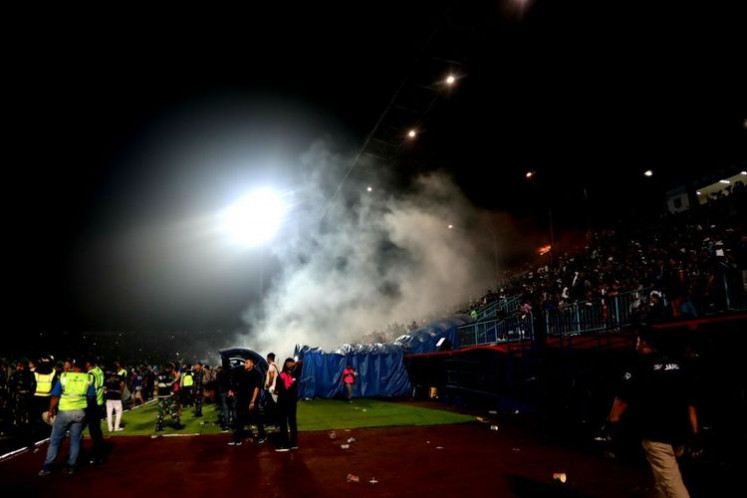
Sports law researcher Eko Noer Kristiyanto discussed the use of mounted security personnel and police dogs.
“Let’s look at foreign countries that use police officers on horseback to control the supporters. The fans will be afraid given the horses’ height, and the police will be even higher above them,” said Eko.
“Or a simple example is implementing dogs. In my experience, fans are more afraid of dogs than the police,” Eko added.
Nugroho, meanwhile, said dogs “could work, but we need to be careful. Don’t let the dogs injure others.”
Eko claimed that when fans stormed the playing field, the first priority was to ensure the security of the players.
“Make sure the players are safe first. These field invaders wouldn’t have had the courage to attack the police if they weren’t also attacked in the first place,” he said.
Eko noted that crowd theory played into the issue. Supporters of the same team felt they had “lots of friends in the stadium”.
“Thus, they [may find] a common enemy. Sadly, it just so happens that the common enemy ended up being the police,” he said.
Nugroho proposed that the same sense of “brotherhood” be used to de-escalate tensions through the recruitment of some supporters as stewards in charge of limiting unruly behavior.
“These field stewards can be the supporters’ friends, whom they know and highly respect,” he said.
“They will handle them persuasively and in a ‘supportive’ way. If the escalation increases, the police can take over with measured actions according to the threat level,” he added.
Grim lesson
The most important thing, Akmal said, was to ensure that a tragedy like the Saturday stampede would not be repeated. To do so, a meticulous investigation needed to be carried out.
“The Soccer Association of Indonesia [PSSI] must make regulations on the supporters, and after taking action to find out which parties are at fault for this tragedy and rightly convicting them, only then can the league be continued,” he said.
Akmal criticized PSSI for the police’s use of tear gas, which even targeted supporters sitting in the stands.
“This is also PSSI’s negligence for not conveying to the police that soccer security is different from usual mass protests or demonstrations,” he said.
“We must understand that there are two regulatory systems that apply in soccer security. The first is institutional rules, like from FIFA, PSSI, etc., and the second is national law,” he said.
Institutional rules, he said, usually took previous events into account for the sake of supporters, such as past stadium tragedies like the Heysel Stadium disaster in Brussels in 1985 or the Hillsborough Stadium disaster in Sheffield, England, in 1989.
“In the past, [firearms and tear gas] were used […]. The FIFA ban shows that it’s not right and it’s not effective. It’s dangerous for the fans,” Eko added.


